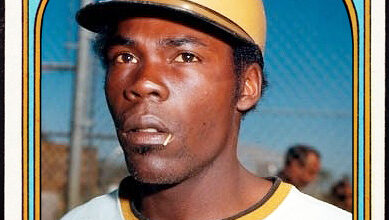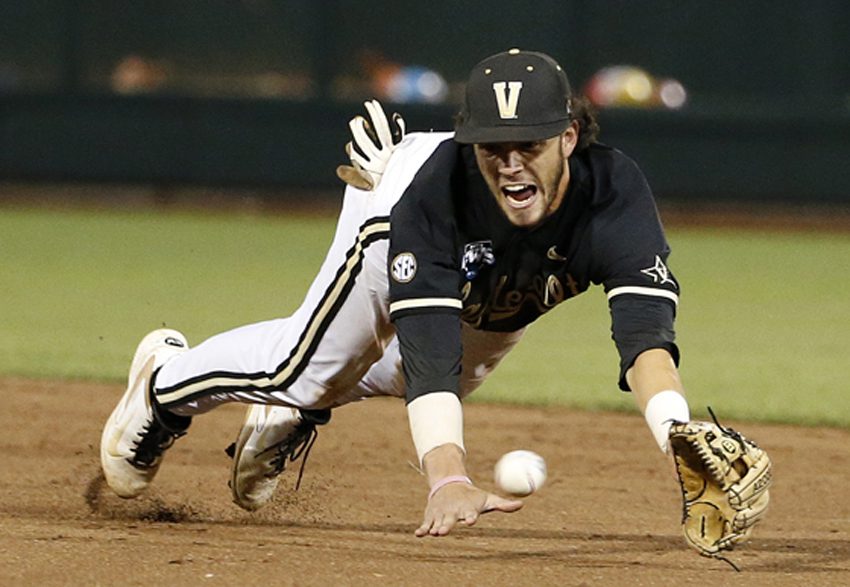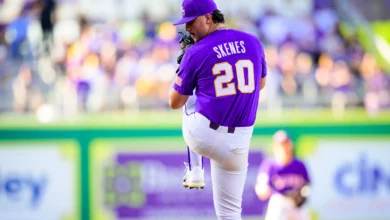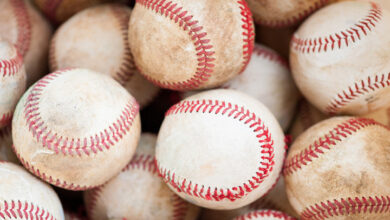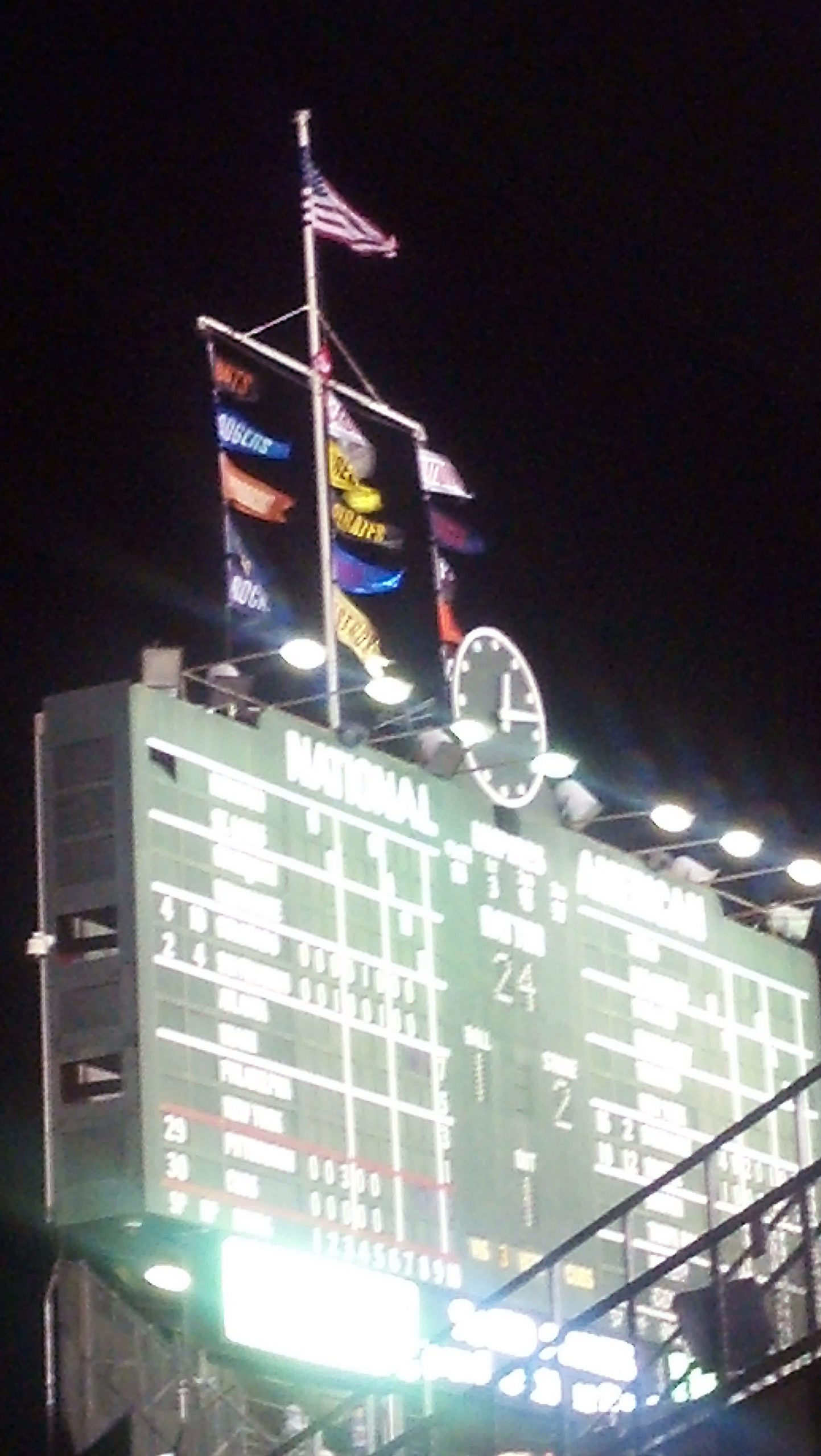
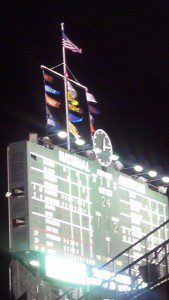
There’s something about Wrigley Field on nights like Monday. First, there was a rain delay of over three hours. The need to play was necessary to wrap up the season series in a game that might have playoff implications for the Pirates (did I really just type that?). The game went ahead as scheduled, and started after many other games had already wrapped up. And, so, away the Cubs and the Pirates went.
I hopped in my car and headed in the general direction of Wrigley Field. I didn’t have a ticket, and had no intention of getting one, either. Instead, I wanted to see what it felt like to be at the ballpark in the midnight hour. And it certainly was different from a regular night game.
There were police barricades out on several streets around the ballpark. Whether that’s standard for every night game, I can’t say. But I arrived at the park right around midnight, parked my car two blocks away on the street (no way is that possible for a regular night game) and headed toward the lights.
It occurred to me, as I was walking down an alley toward the wall along Waveland Avenue, that many people in their 20s and younger don’t know about the old days when Wrigley had no lights. I can remember it from watching games on TV, and going to games in person after I moved to Chicago in the 1980s. But a quarter-century ago, what I was doing simply wouldn’t be possible.
I reached Waveland and was struck by the majesty of the old scoreboard. The flags fluttered in the breeze, the scores of all the other games were posted as always, and the clock read a few minutes after midnight. I noticed a few people sitting in the back of the bleachers, but the upper deck looked to be deserted. The whole park was strangely quiet, from my spot on the sidewalk behind the left field wall.
The El train went by and created more of a ruckus than usual, no doubt because it was so late at night. When the scoreboard numbers changed to announce the next batter coming up, the clicking sounds were also louder than normal. I didn’t hear much in the way of crowd noise, as if the hard core fans who had decided to stick around were just taking it easy. The game had no real meaning for the Cubs, anyway.
I stood in the middle of Waveland Avenue and snapped a few pictures. Most of them didn’t turn out as I wanted them to, but I wasn’t really there for pictures, anyway. I was there, in the shadows of an ancient and timeless home of one of my favorite things in life.
Hack Wilson wouldn’t recognize Wrigley by night, nor would most of the players I grew up watching in the 1970s. But Wrigley has evolved, along with the game itself. And as the time came to get back in my car and drive home to write this post, I thought about baseball and the Cubs and Wrigley Field.
Baseball is something that I couldn’t do without. The Cubs and Wrigley Field have been such constants in my life that losing them would be devastating. Fans like me, and maybe like you, too, need this game because it fills a space in our lives that nothing else could. And a midnight game at the old ballpark in Chicago is just what I needed to remind me of this.


